#East Africa
Explore tagged Tumblr posts
Text




#sudan#middle east#horn of africa#keep eyes on sudan#sudan war#east africa#Mutual aid links pinned on my page
11K notes
·
View notes
Text
Naming International POC Characters: Do Your Research.
This post is part of a double feature for the same ask. First check out Mod Colette's answer to OP's original question at: A Careful Balance: Portraying a Black Character's Relationship with their Hair. Below are notes on character naming from Mod Rina.
~ ~ ~
@writingraccoon said:
My character is black in a dungeons and dragons-like fantasy world. His name is Kazuki Haile (pronounced hay-lee), and his mother is this world's equivalent of Japanese, which is where his first name is from, while his father is this world's equivalent of Ethiopian, which is where his last name is from. He looks much more like his father, and has hair type 4a. [...]
Hold on a sec.
Haile (pronounced hay-lee), [...] [H]is father is this world’s equivalent of Ethiopian, which is where his last name is from.
OP, where did you get this name? Behindthename.com, perhaps?

Note how it says, “Submitted names are contributed by users of this website. Check marks indicate the level to which a name has been verified.” Do you see any check marks, OP?
What language is this, by the way? If we only count official languages, Ethiopia has 5: Afar, Amharic, Oromo, Somali, & Tigrinya. If we count everything native to that region? Over 90 languages. And I haven't even mentioned the dormant/extinct ones. Do you know which language this name comes from? Have you determined Kazuki’s father’s ethnic group, religion, and language(s)? Do you know just how ethnically diverse Ethiopia is?
~ ~ ~
To All Looking for Character Names on the Internet:
Skip the name aggregators and baby name lists. They often do not cite their sources, even if they’re pulling from credible ones, and often copy each other.
If you still wish to use a name website, find a second source that isn’t a name website.
Find at least one real life individual, living or dead, who has this given name or surname. Try Wikipedia’s lists of notable individuals under "List of [ethnicity] people." You can even try searching Facebook! Pay attention to when these people were born for chronological accuracy/believability.
Make sure you know the language the name comes from, and the ethnicity/culture/religion it’s associated with.
Make sure you understand the naming practices of that culture—how many names, where they come from, name order, and other conventions.
Make sure you have the correct pronunciation of the name. Don’t always trust Wikipedia or American pronunciation guides on Youtube. Try to find a native speaker or language lesson source, or review the phonology & orthography and parse out the string one phoneme at a time.
Suggestions for web sources:
Wikipedia! Look for: “List of [language] [masculine/feminine] given names,” “List of most common [language] family names,” “List of most common surnames in [continent],” and "List of [ethnicity] people."
Census data! Harder to find due to language barriers & what governments make public, but these can really nail period accuracy. This may sound obvious, but look at the year of the character's birth, not the year your story takes place.
Forums and Reddit. No really. Multicultural couples and expats will often ask around for what to name their children. There’s also r/namenerds, where so many folks have shared names in their language that they now have “International Name Threads.” These are all great first-hand sources for name connotations—what’s trendy vs. old-fashioned, preppy vs. nerdy, or classic vs. overused vs. obscure.
~ ~ ~
Luckily for OP, I got very curious and did some research. More on Ethiopian & Eritrean naming, plus mixed/intercultural naming and my recommendations for this character, under the cut. It's really interesting, I promise!
Ethiopian and Eritrean Naming Practices
Haile (IPA: /həjlə/ roughly “hy-luh.” Both a & e are /ə/, a central “uh” sound) is a phrase meaning “power of” in Ge’ez, sometimes known as Classical Ethiopic, which is an extinct/dormant Semitic language that is now used as a liturgical language in Ethiopian churches (think of how Latin & Sanskrit are used today). So it's a religious name, and was likely popularized by the regnal name of the last emperor of Ethiopia, Haile Selassie (“Power of the Trinity”). Ironically, for these reasons it is about as nationalistically “Ethiopian” as a name can get.
Haile is one of the most common “surnames” ever in Ethiopia and Eritrea. Why was that in quotes? Because Ethiopians and Eritreans don’t have surnames. Historically, when they needed to distinguish themselves from others with the same given name, they affixed their father’s given name, and then sometimes their grandfather’s. In modern Ethiopia and Eritrea, their given name is followed by a parent’s (usually father’s) name. First-generation diaspora abroad may solidify this name into a legal “surname” which is then consistently passed down to subsequent generations.
Intercultural Marriages and Naming
This means that Kazuki’s parents will have to figure out if there will be a “surname” going forward, and who it applies to. Your easiest and most likely option is that Kazuki’s dad would have chosen to make his second name (Kazuki’s grandpa’s name) the legal “surname.” The mom would have taken this name upon marriage, and Kazuki would inherit it also. Either moving abroad or the circumstances of the intercultural marriage would have motivated this. Thus “Haile” would be grandpa’s name, and Kazuki wouldn’t be taking his “surname” from his dad. This prevents the mom & Kazuki from having different “surnames.” But you will have to understand and explain where the names came from and the decisions dad made to get there. Otherwise, this will ring culturally hollow and indicate a lack of research.
Typically intercultural parents try to
come up with a first name that is pronounceable in both languages,
go with a name that is the dominant language of where they live, or
compromise and pick one parent’s language, depending on the circumstances.
Option 1 and possibly 3 requires figuring out which language is the father’s first language. Unfortunately, because of the aforementioned national ubiquity of Haile, you will have to start from scratch here and figure out his ethnic group, religion (most are Ethiopian Orthodox and some Sunni Muslim), and language(s).
But then again, writing these characters knowledgeably and respectfully also requires figuring out that information anyway.
~ ~ ~
Names and naming practices are so, so diverse. Do research into the culture and language before picking a name, and never go with only one source.
~ Mod Rina
#asks#language#languages#linguistics#east africa#african#immigration#ethiopian#names#naming#research#resources#writeblr#character names#character name ideas#rina says read under the cut. read it
4K notes
·
View notes
Text

Comorian bride, from Comoros, by fathy_elegance
#comorian#comoros#africa#east africa#folk clothing#traditional clothing#traditional fashion#cultural clothing
601 notes
·
View notes
Text

By Lostwithanna
Diani Beach, Kwale County, Kenya
#curators on tumblr#kenya#africa#travel#landscape#beach#sea#ocean#sunset#pink#east africa#diani beach#kwale#kwale county#lostwithanna
688 notes
·
View notes
Text
Hey, please don’t skip this if you’re LGBTIQ+ or support the queer community.🙏🏳️🌈❤️
It has been a week and two days since we were brutally attacked. Our shelters our tents, the only homes we had were demolished, many of them set on fire. As I’ve shared in previous updates here, we were severely beaten by a homophobic local community for one simple reason: being LGBTIQ+.
We were forced to flee for our lives, leaving behind what little we had. Now, we are sleeping in the compound of a nearby police station, hoping it provides some level of safety. But even here, safety is not guaranteed.
We sleep on the bare ground without any bedding or mosquito nets, and many of us have fallen sick with malaria. We live in constant fear that the attackers will return. On top of this, we have no food or clean water, and our situation is becoming increasingly desperate.
I am pleading with you if you’re reading this, please consider donating to our fundraiser. Any amount, no matter how small, will make a huge difference. Your donations will go directly toward:
• Providing food and clean water.
• Rebuilding shelters and securing tents.
• Purchasing medicine to treat malaria and other illnesses.
We also need your help to spread the word. Please reblog this post so it can reach as many people as possible. Share it widely and help us show the world what we, as LGBTIQ+ refugees in East Africa, are going through every single day.
Your support could save lives. Thank you for standing with us
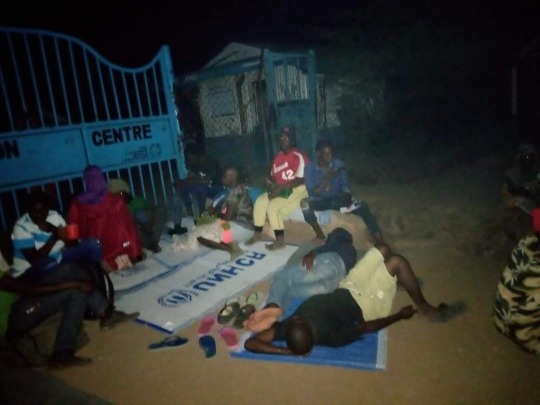
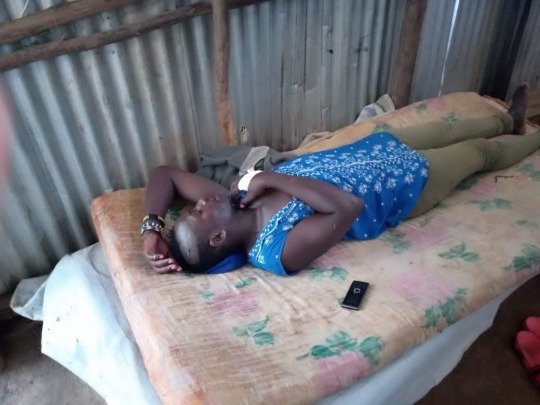

#lgbtiqrefugees#queer community#east africa#support lgbt+#humnanRights#gay#intersex#nonbinary#queer#aromantic#biseuxal#demisexual#genderfluid#gender#transgender#lesbian#pansexual#ace#lgbtiq#lgbtq+#humanitarian crisis#transfem#trans#asexuality#asexual#bisexuality#lgbtqia#lgbtq support#refugees#lgbtq community
202 notes
·
View notes
Text

Views from the Seychelles
#seychelles#beachlife#beaches#beach#east africa#travel photography#amazing nature#travel#nature#travel destinations#sea#beautiful nature
682 notes
·
View notes
Text



#kemetic dreams#iceland#Asia#europe#africa#east africa#Ethiopia#epic video#nature video#nature photography#nature#nature aesthetic
1K notes
·
View notes
Text

#rubi rose#slim waist#black tumblr#black girl moodboard#black girl fitspo#black girls of tumblr#black magic#east africa#black beauty#black women#black woman#black is beautiful#black girl fashion#black woman appreciation#black girl magic#pretty black girls#girls of tumblr#black girls are beautiful#it girl#for you#foryou#trending#fashion shoot#birthday#birthday shoot#melanin#pretty#libra
364 notes
·
View notes
Note
Requesting maned rat pretty please


#east africa#african wildlife#wildlife#rodent#rodentia#muridae#maned rat#crested rat#poisonous animals#animal polls#poll blog#my polls#animals#polls#tumblr polls
155 notes
·
View notes
Text

afar women
#luxury black women#black girls of tumblr#black girl beauty#black girl magic#black woman appreciation#black tumblr#black woman beauty#black is beautiful#black women#black beauty#black woman femininity#hyper feminine#girly aesthetic#black girl aesthetic#black girl luxury#it girl#just girly things#girlblogging#african aesthetic#east africa#african#africa#afrocentric#princessofafrica ♡
136 notes
·
View notes
Text
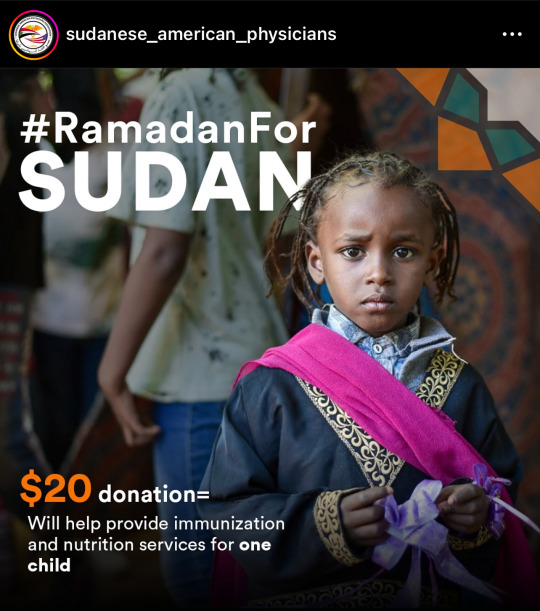



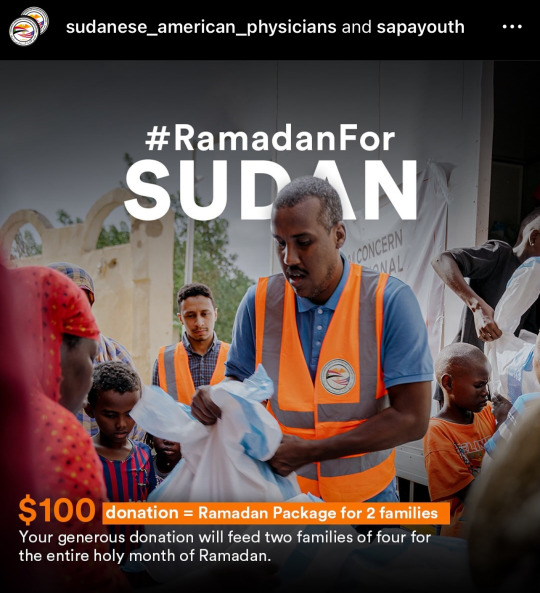

The Sudanese American Physicians Association (SAPA) is appealing for donations, especially in the lead up to Ramadan.
#sudan#north africa#east africa#signal boost#mutual aid#fundraiser#middle east#horn of africa#ramadan
17K notes
·
View notes
Text
Not all Second-Language Speakers are Made Equal.
@waltzshouldbewriting asked:
Hello! I’m writing a story that features a character who’s first language is not English. He’s East African, specifically from Nairobi, Kenya, and is pretty fluent in English but it’s not his primary language, and he grew up speaking Swahili first. I’m struggling to figure out if it’s appropriate or in character to show him forgetting English words or grammar. From what I’ve researched, English is commonly spoken in Nairobi, but it wouldn’t be what was most spoken in his home. For context, this is an action/superhero type story, so he (and other characters) are often getting tired, stressed, and emotional. He also speaks more than two languages, so it makes sense to me that it would be easier to get confused, especially in a language that wasn’t his first. But I’m worried about ending up into stereotypes or tropes. For additional context: I’m monolingual, I’ve tried to learn a second language and it’s hard. A lot of how I’m approaching this comes from my own challenges correctly speaking my own, first and only language.
Diversity in Second-Language English
You seem to have an underlying assumption that second language acquisition happens the same for everyone.
The way your character speaks English depends on so many unknown factors:
Where does your story take place? You mention other characters; are they also Kenyan, or are they all from different countries?
Assuming the setting is not Kenya, is English the dominant language of your setting?
How long has your character lived in Kenya vs. where he is now?
What are his parents’ occupations?
What level of schooling did he reach in Nairobi before emigrating?
What type of school(s) did he go to, public or private? Private is more likely than you think.
Did his schooling follow the national curriculum structure or a British one? Depends on school type and time period.
Does he have familiarity with Kenyan English, or only the British English taught in school?
Is this a contemporary setting with internet and social media?
I bring up this list not with the expectation that you should have had all of this in your ask, but to show you that second language acquisition of English, postcolonial global English acquisition in particular, is complex.
My wording is also intentional: the way your character speaks English. To me, exploring how his background affects what his English specifically looks like is far more culturally interesting to me than deciding whether it makes him Good or Bad at the language.
L2 Acquisition and Fluency
But let’s talk about fluency anyway: how expressive the individual is in this language, and adherence to fundamental structural rules of the language.
Fun fact: Japanese is my first language. The language I’m more fluent in today? English. Don’t assume that an ESL individual will be less fluent in English compared to their L1 counterparts on the basis that 1) it’s their second language, or 2) they don’t speak English at home.
There’s even a word for this—circumstantial bilingualism, where a second language is acquired by necessity due to an individual’s environment. The mechanisms of learning and outcomes are completely different.
You said you tried learning a second language and it was hard. You cannot compare circumstantial bilingualism to a monolingual speaker’s attempts to electively learn a second language.
Motivations?
I understand that your motivation for giving this character difficulties with English is your own personal experience. However, there are completely different social factors at play.
The judgments made towards a native speaker forgetting words or using grammar differently are rooted in ableism and classism (that the speaker must be poor, uneducated, or unintelligent). That alone is a hefty subject to cover. And I trust you to be able to cover that!
But on top of that, for a second language speaker, it’s racism and xenophobia, which often lend themselves to their own ableist or classist assumptions (that those of the speaker’s race/ethnicity must be collectively unintelligent, that they are uneducated or low class due to the occupations where they could find work, or conversely that they are snobby and isolationist and can't be bothered to learn a new language). Intersections, intersections.
If you want to explore your experiences in your writing, give a monolingual English speaker in your cast a learning disability or some other difficulty learning language, whatever you most relate with. And sure, multilingual folks can occasionally forget words like anyone else does, or think of a word in one language and take a second to come up with it in the other language. But do not assume that multilinguals, immigrants, or multiethnic individuals inherently struggle with English or with multiple languages just because you do.
~ Rina
#asks#accents#speech#language#languages#bilingual#bilingualism#ESL#immigration#east africa#african#writeblr
2K notes
·
View notes
Text

Afar dancer, Djibouti, by Nesha Humes
#afar#djibouti#africa#east africa#folk clothing#traditional clothing#traditional fashion#cultural clothing
601 notes
·
View notes
Text

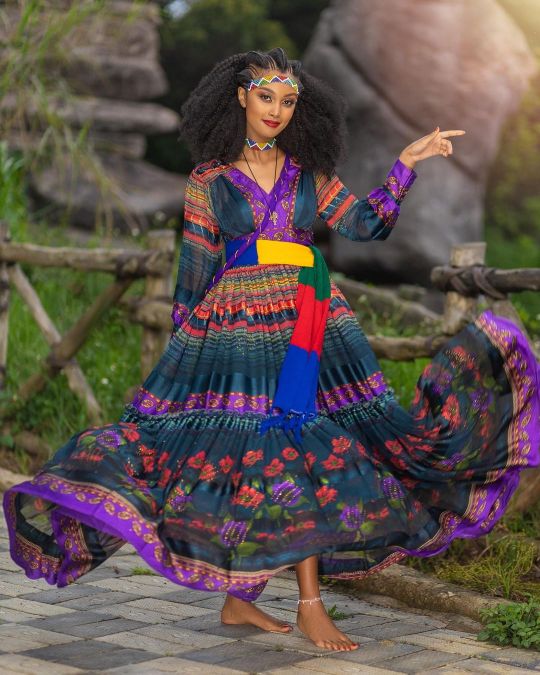

#melanin#pretty#blackgirlmagic#ethiopian#habesha#melanin poppin#african beauty#modest#modesty#womens fashion#black queen#black fashion#ebony#chocolate#brown skin#east africa#african
722 notes
·
View notes
Text

Dar es Salaam, Tanzania: Dar es Salaam (Abode of Peace) is the largest city and financial hub of Tanzania. It is also the capital of the Dar es Salaam Region. Dar es Salaam is the largest city in East Africa and the sixth-largest in Africa. Located on the Swahili coast, Dar es Salaam is an important economic center and one of the fastest-growing cities in the world. Dar es Salaam is Tanzania's most prominent city for arts, fashion, media, film, television, and finance. Wikipedia
147 notes
·
View notes